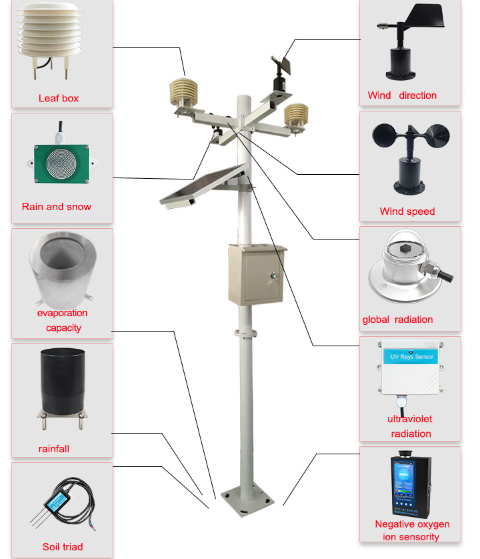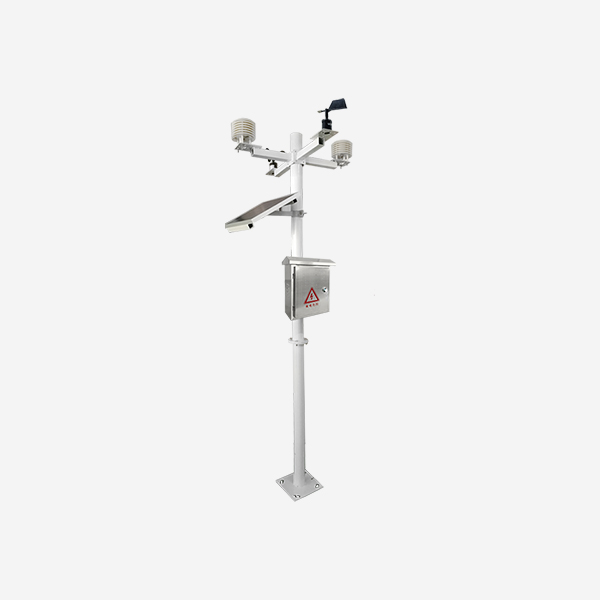Weather stations play a crucial role in today’s world by providing essential meteorological data that is used for a wide range of purposes. Including weather forecasting, climate monitoring, agriculture, aviation, disaster management, and environmental research. These stations are equipped with various instruments to measure atmospheric conditions such as temperature, humidity, air pressure, wind speed and direction, precipitation, and solar radiation. The data collected by weather stations is instrumental in understanding and predicting weather patterns, assessing climate trends, and making informed decisions in various sectors.

In this article, we will explore the significance of weather stations, the technology behind them, their applications, and their impact on different aspects of society.
Significance of Weather Stations
Weather station are significant for several reasons:
Weather Forecasting: Weather station provide real-time and historical data on atmospheric conditions, which is crucial for weather forecasting. Meteorologists use this data to predict short-term and long-term weather patterns, issue warnings for severe weather events, and provide information for public safety and planning.
Climate Monitoring: Weather station contribute to monitoring long-term climate trends and variations. The data collected over time helps scientists and researchers understand climate change, assess its impact on ecosystems and human activities, and develop strategies for adaptation and mitigation.

Agriculture and Farming: Weather station provide valuable information for farmers and agricultural practitioners. Data on temperature, precipitation, and humidity helps in making decisions related to planting, irrigation, pest control, and harvest timing, ultimately contributing to improved agricultural productivity and sustainable land management.
Aviation and Transportation: Weather station play a critical role in aviation and transportation by providing weather data for flight planning, airport operations, and maritime navigation. Accurate and timely weather information is essential for safe and efficient travel and logistics operations.
Disaster Management: Weather station contribute to disaster preparedness and response by monitoring conditions that can lead to natural disasters such as hurricanes, tornadoes, floods, and wildfires. Timely and accurate weather data helps in issuing warnings and coordinating emergency responses.
Technology Behind Weather Station
Weather station utilize a variety of instruments and technologies to measure atmospheric parameters. Some of the key components include:
Thermometers: Measure air temperature.
Hygrometers: Measure relative humidity.
Barometers: Measure air pressure.
Anemometers: Measure wind speed and direction.
Rain Gauges: Measure precipitation.
Pyranometers: Measure solar radiation.
Weather Satellites and Radar: Provide additional data for weather monitoring and forecasting.
Applications of Weather Station
Weather station have diverse applications across different sectors:
Public Safety and Health: Weather station provide critical information for public safety, health, and emergency management, helping communities prepare for and respond to extreme weather events and natural disasters.
Agriculture and Forestry: Weather stations support agriculture by providing crop management and soil moisture monitoring.
Energy and Utilities: Weather station contribute to the efficient operation of energy and utility systems by providing data for renewable energy generation, power grid management, and resource planning.
Research and Education: Weather station are used in scientific research, education, and environmental monitoring programs to study weather patterns, climate change, and atmospheric processes.
Urban Planning and Infrastructure: Weather stations provide data for urban planning and construction projects, helping buildings remain resilient
Impact of Weather Station on Society
The data collected by weather station has a significant impact on various aspects of society:
Public Safety: Weather station contribute to public safety by providing early warnings for severe weather events, helping to minimize the impact of disasters on communities and infrastructure.
Economic Activities: Weather stations provide the necessary information to support various economic activities through risk management.
Environmental Management: Weather stations help monitor environmental conditions, assess climate change, and develop strategies for sustainable land use.
Conclusion
Weather stations play a vital role in today’s world by providing basic meteorological data for weather forecasting, climate monitoring and agriculture. The data collected by weather station has a profound impact on public safety, economic activities, environmental management, and scientific research. As technology continues to advance, weather stations are becoming smarter and smarter, which is critical to meeting the challenges posed by climate change. In today’s world, weather stations play a key role in making decisions about the weather and influencing the social environment.
